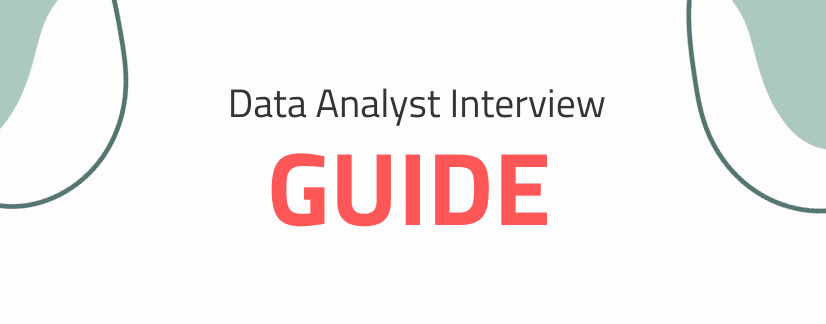Whether you’re looking to switch careers or enhance your skill set, this comprehensive roadmap will guide you through the steps to becoming a proficient data analyst.
1. Grasping the Fundamentals
Before diving into technical skills, it’s essential to understand the basics of data analysis.
- What is Data Analysis?
Data analysis involves examining, cleaning, and interpreting data to uncover meaningful insights. It encompasses various types, including descriptive (summarizing data), diagnostic (identifying causes), predictive (forecasting trends), and prescriptive (recommending actions). - Key Terminology
Familiarize yourself with terms like datasets, variables, observations, and statistical measures such as mean, median, mode, and standard deviation. These concepts form the backbone of data analysis.
2. Building a Strong Foundation in Mathematics and Statistics
Data analysis relies heavily on mathematical and statistical principles.
- Basic Mathematics
Refresh your knowledge of algebra, calculus, and linear algebra. These topics are crucial for understanding algorithms and data models. - Statistics
Learn core statistical concepts like probability, distributions, hypothesis testing, regression, and correlation. These tools help you make sense of data and draw accurate conclusions.
3. Developing Programming Skills
Programming is a cornerstone of data analysis. Focus on learning these languages and tools:
- Python
- Basics: Start with Python syntax, data types, and control structures like loops and conditionals.
- Libraries: Master pandas for data manipulation, NumPy for numerical computing, and matplotlib/seaborn for data visualization.
- R
R is another powerful language, especially for statistical analysis and visualization. Learn its basics and explore libraries like ggplot2.
4. Mastering Data Manipulation and Cleaning
Raw data is often messy, so cleaning and preprocessing are critical.
- Data Wrangling
Learn techniques to handle missing values, remove duplicates, and standardize data formats. - SQL
SQL is essential for querying databases. Focus on mastering SELECT statements, JOINs, subqueries, and aggregate functions.
5. Creating Impactful Data Visualizations
Visualizing data effectively helps communicate insights clearly.
- Tools and Libraries
- Python: Use matplotlib, seaborn, and plotly for creating visualizations.
- R: Explore ggplot2 for advanced plotting.
- Specialized Tools: Learn tools like Tableau and Power BI for interactive dashboards.
- Best Practices
Focus on clarity, accuracy, and efficiency in your visualizations. Avoid clutter and ensure your visuals tell a compelling story.
6. Conducting Exploratory Data Analysis (EDA)
EDA is the process of summarizing and understanding your data.
- Techniques
Use visual methods and statistical summaries to identify patterns, trends, and anomalies. - Tools
Leverage Python (pandas) or R (ggplot2) to perform EDA effectively.
7. Advancing Your Analytical Skills
Once you’ve mastered the basics, explore more advanced topics.
- Machine Learning Basics
Learn about supervised and unsupervised learning, and explore algorithms like linear regression, decision trees, and clustering. - Time Series Analysis
Understand how to analyze data collected over time, which is crucial for forecasting and trend analysis.
8. Gaining Practical Experience
Hands-on experience is key to solidifying your skills.
- Kaggle
Participate in Kaggle competitions and explore their datasets to practice real-world problems. - Personal Projects
Work on projects that interest you, such as analyzing sales data or predicting housing prices. Document your findings and share them online.
9. Leveraging Learning Resources
There’s no shortage of resources to help you learn.
- Online Courses
- Coursera: “Data Science” by Johns Hopkins University, “Google Data Analytics Professional Certificate.”
- edX: “Data Science MicroMasters” by MIT.
- Udemy: Courses on Python, SQL, and Tableau.
- Books
- “Python for Data Analysis” by Wes McKinney.
- “R for Data Science” by Hadley Wickham.
- “Practical Statistics for Data Scientists” by Peter Bruce and Andrew Bruce.
10. Building a Portfolio
A strong portfolio showcases your skills to potential employers.
- GitHub
Upload your projects and code to GitHub to demonstrate your technical abilities. - Blogging
Write about your projects and insights on platforms like Medium or a personal blog. This not only reinforces your learning but also establishes your expertise.
11. Networking and Community Engagement
Connecting with others in the field can open doors to opportunities.
- Online Communities
Join forums like Stack Overflow, Reddit (r/datascience), and LinkedIn groups to ask questions and share knowledge. - Meetups and Conferences
Attend industry events to learn from experts and network with professionals.
12. Earning Certifications
Certifications can validate your skills and boost your resume.
- Popular Options
- Google Data Analytics Professional Certificate.
- Microsoft Certified: Data Analyst Associate.
- IBM Data Analyst Professional Certificate.
13. Committing to Continuous Learning
The field of data analysis is constantly evolving, so staying updated is crucial.
- Stay Informed
Follow blogs, podcasts, and industry news to keep up with the latest trends and technologies. - Explore Advanced Topics
Dive into areas like deep learning, big data technologies (Hadoop, Spark), and cloud services (AWS, Azure) to expand your expertise.
Becoming a data analyst is a journey that requires dedication, curiosity, and continuous learning. By following this roadmap, you’ll build the skills and experience needed to thrive in this exciting field. Start small, stay consistent, and don’t be afraid to tackle challenges along the way. Your future as a data analyst awaits!
ALSO CHECKOUT
6 FREE IBM Certification Courses
Master Data Analysis and Visualization with This Free Course
NVIDIA FREE AI Certification Courses
5 Free Microsoft Data Analytics Certification Courses
Top Free Data Analytics Courses to Explore
CISCO FREE Certification Courses
Top Free SQL Courses with Certifications
10 Free Certification Courses to Master High-Income Skills in 2025
Google FREE AI/ML Certification Course
Learn AI and Machine Learning for FREE with 6 Top Institutions!
6 FREE Harvard Certification Courses
Top 45 SQL Interview Questions & Answers
5 Best FREE Online Courses To do In 2025
Master Data Analytics with These 6 Free IBM Courses
Interview guide for Data Analyst Role
Boost Your Career with Microsoft’s Free Courses!
Preparing for Your First Data Analytics Interview
3 Must Do FREE Data Analytics Certification Courses



